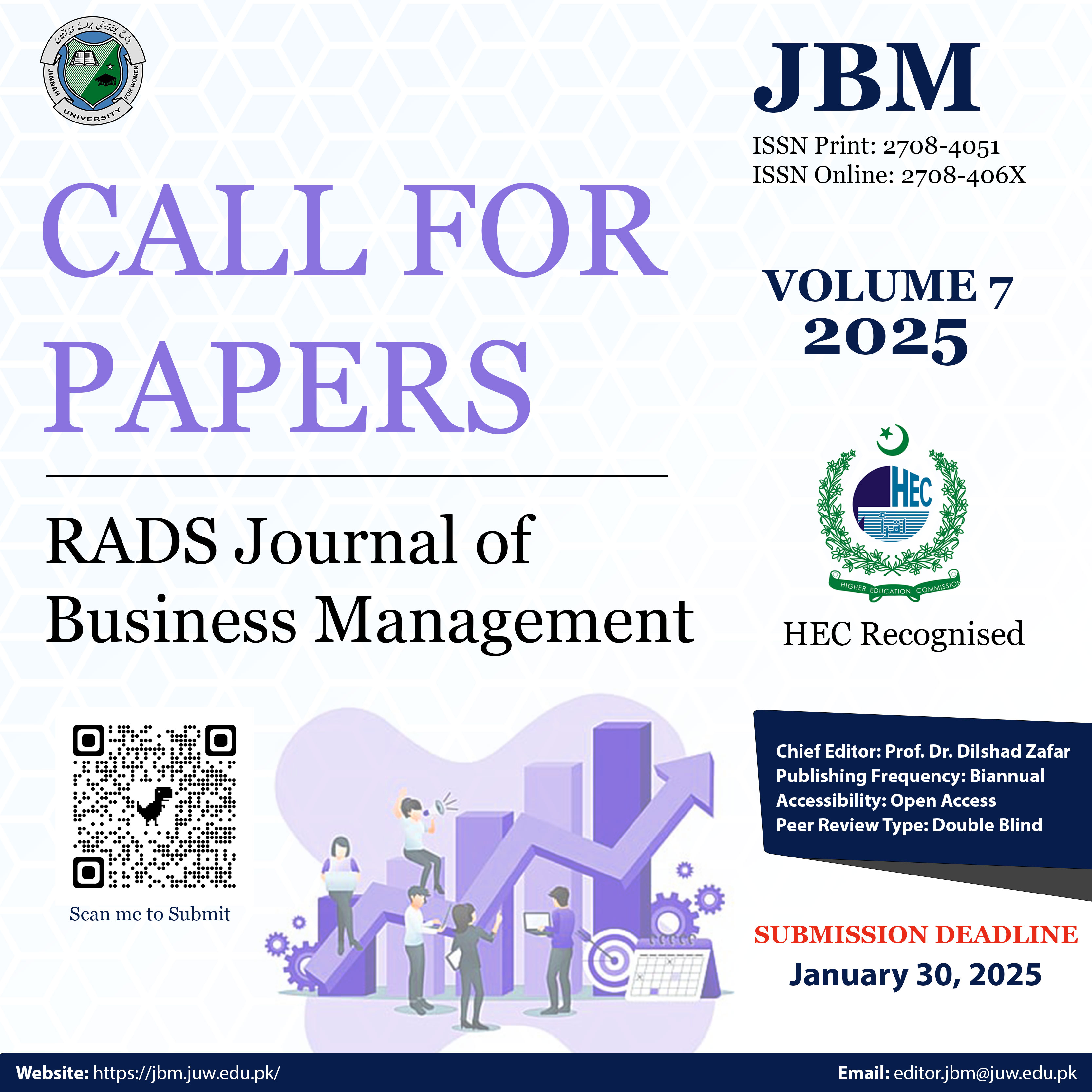Effect of Positive HR-Attributions on Service Quality through Affective Commitment and Organization Citizenship Behavior
Abstract
Service excellence is considered vital in higher education and therefore, the provision of quality service is a challenge for institutions. Therefore, this study adds to the literature by exploring the extent HR attributions (positive) are related to service quality and through the mediation of organizational citizenship behavior and affective commitment. It enriches the literature by highlighting relatively new outcomes of HR-attributions. A survey-based questionnaire has collected data from a dyad of 331 faculty members and students of the universities of Islamabad and Rawalpindi. MEDTHREE analysis was used for data analysis along with other statistical tests. The study results show positive but weak relationships between HR-positive attributions, service quality, and organizational citizenship behavior through the mediation of affective commitment. These findings highlight the role of context in the development of attributions and assert the role of clear communication of policies, motivations, and intentions, to the employees. This study shows affective commitment as the most vital mediator in HR attributions and service quality relationships. It can be concluded that if employees infer positive motivation behind HR practices, they become a committed workforce. Therefore, employees may perform well and provide better services through discretionary behaviors, which positively add to organizational outcomes. This study has opened new research avenues to explore the HR process approach and a novel phenomenon of HR attributions in different cultures, local context and varied organizational settings to seek more aspects that may be critical to achieving organizational outcomes.
The author retains the copyright and grants the right of first publication to the journal.





